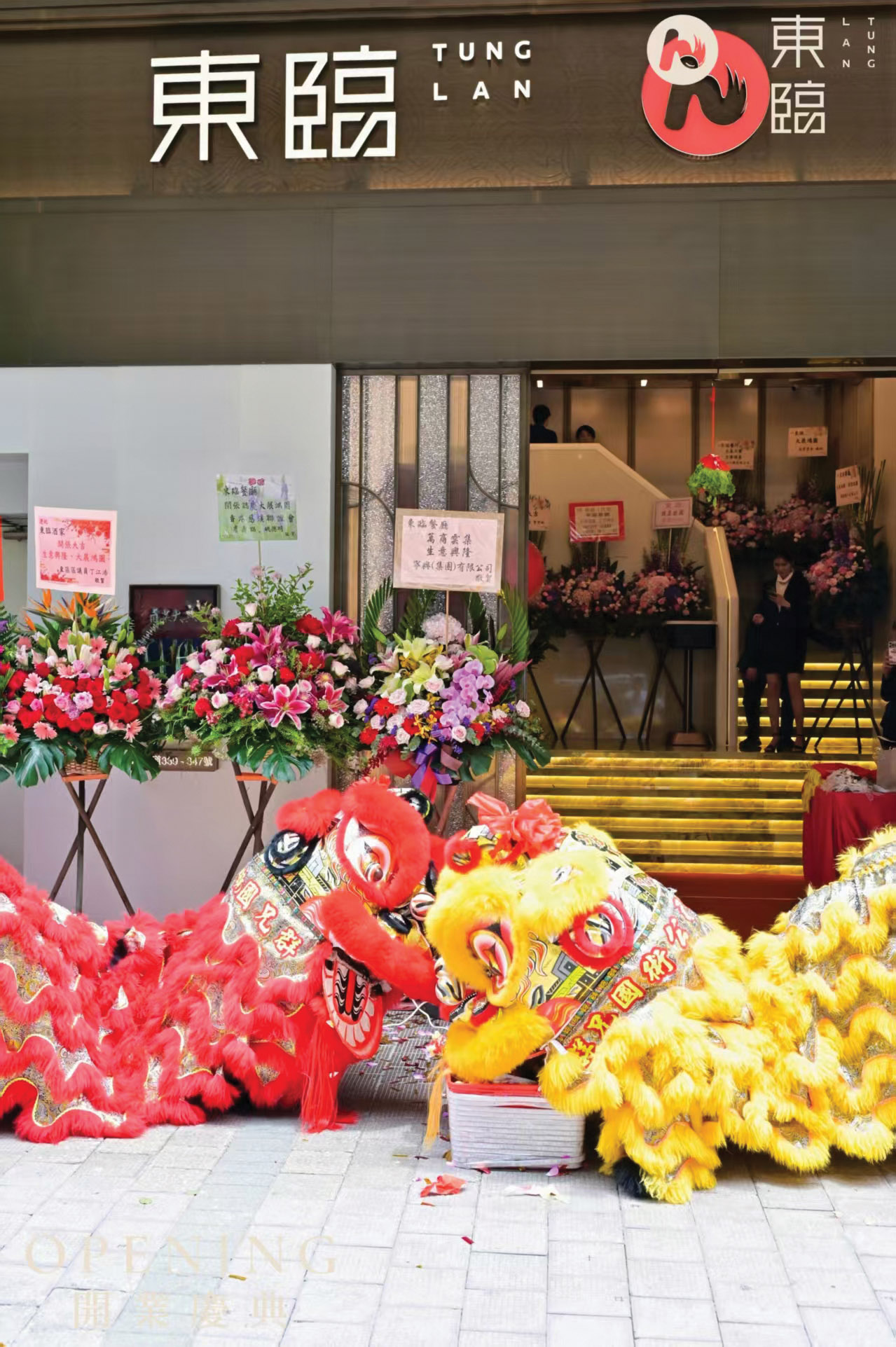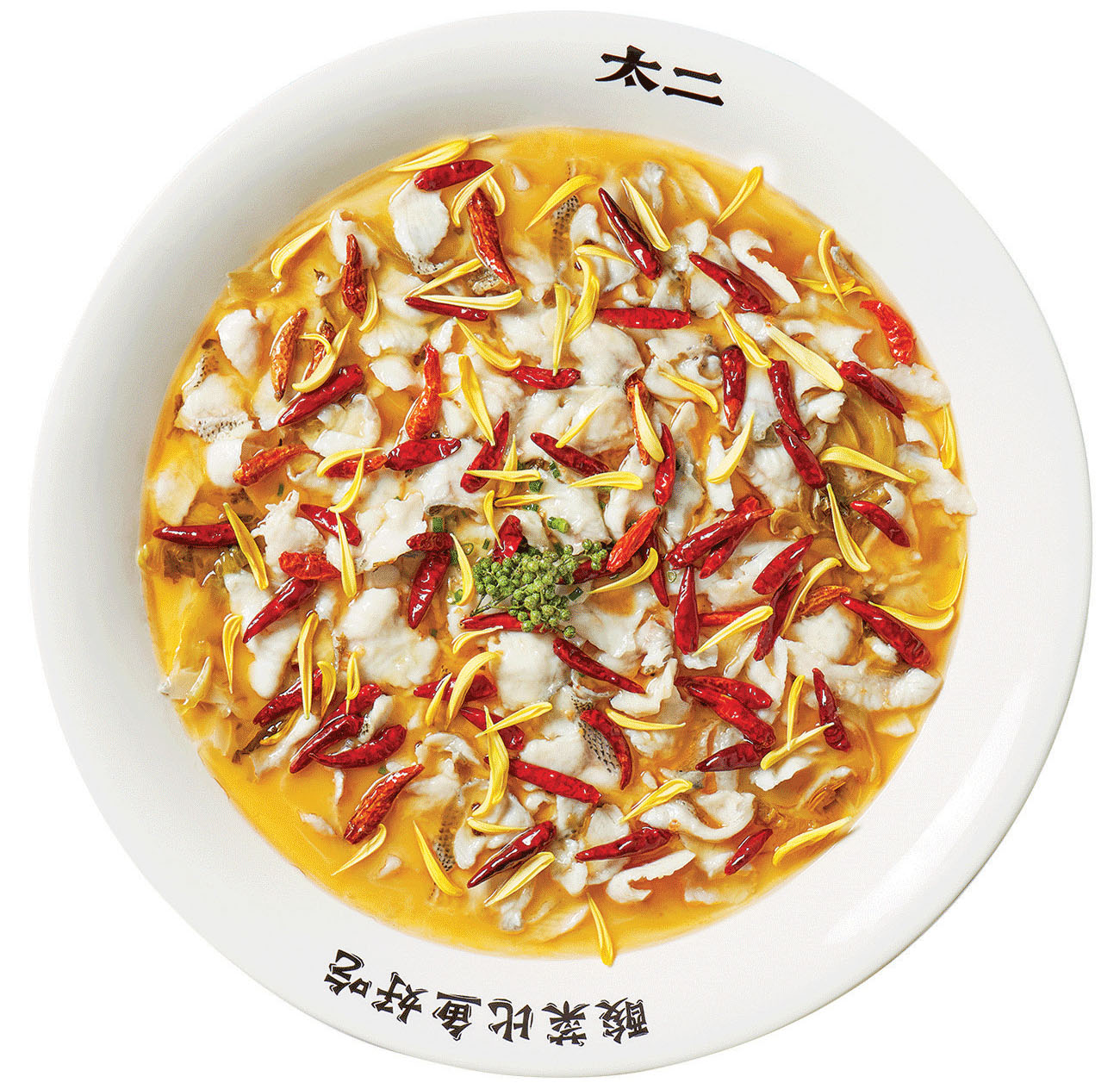Fresh-drinks makers from the Chinese mainland — facing stiff competition at home — are increasingly looking south to Hong Kong, using the city’s financial hub status to seek expansion and secure funding. Li Xiaoyun reports from Hong Kong.

The trend of Chinese mainland food-and-beverage enterprises making a beeline for Hong Kong’s bourse is showing no signs of abating.
Mixue Group — the nation’s largest freshly made drinks chain and the world’s biggest F&B enterprise in terms of the number of outlets — made a strong debut on the Hong Kong Stock Exchange earlier this month, raising nearly HK$3.5 billion ($450 million) in the city’s biggest initial public offering so far this year.
The funding was close to that of Shenzhen-based Nayuki Holdings, which also runs a chain of teahouses primarily on the mainland, when the company raised a record HK$4.8 billion for the Hong Kong bourse’s consumer sector in an IPO four years ago.
READ MORE: Beverage maker Mixue soars on HK debut with strong investor appetite
Nayuki opened the door for Chinese bubble-tea makers to go public in the special administrative region, but its shares quickly lost steam and have since plummeted more than 90 percent from the offering price.
Despite Nayuki’s woes, mainland beverage firms have continued to descend on the SAR.
Guming Holdings, founded in Zhejiang province, went public last month, joining Sichuan Baicha Baidao Industrial Co, the owner of tea drinks brand ChaPanda, which listed in April last year. Several other brands are also reported to be waiting in line, with one having been given the nod by the country’s securities watchdog to proceed with its IPO in Hong Kong.
The surge in the number of listings in the SAR points to the fierce competition on the mainland’s crowded freshly made drinks market, prompting companies to seek new pastures in growing overseas markets through the city.
According to research firm China Insights Consultancy, there are about 660,000 fresh-beverage stores in the country, with the top five players commanding about 35 percent of the market share.
Overseas markets are seen to offer growth potential. United States business consulting firm Frost & Sullivan estimates that the market for fresh tea beverages outside the mainland was valued at 44 billion yuan ($6.07 billion) in 2023, and is projected to swell to 96.4 billion yuan by 2028.
Companies are under pressure for funding to stay competitive at home with more stores, while exploring markets abroad, says Edward Au Chun-hing, managing partner of Deloitte China Southern Region.

Preferred choice
Given the dynamics in the mainland and US stock markets, listing on the HKEX has been “the most viable pathway for mainland companies to raise capital”, says Kenny Tang Sing-hing, chairman of the Hong Kong Institute of Financial Analysts and Professional Commentators.
The pace of listing on the A-share market has slowed since the China Securities Regulatory Commission gave notice in August 2023 that it would tighten IPO regulations. Last year, mainland bourses saw 100 IPOs, raising 67.35 billion yuan — down more than 80 percent from the previous year. More than 400 companies have since withdrawn their listing bids.
At the same time, the central government hasn’t wavered in backing mainland enterprises to go public in Hong Kong, especially industry leaders. The SAR’s capital market showed signs of warming up with 70 new listings last year, raising HK$87.65 billion — a year-on-year increase of 87.6 percent — reaffirming the city’s position as the world’s fourth-largest IPO market.
Financial services firm Wind says the consumer sector, including drinks makers, has led the fundraising charge, taking up more than 60 percent.
Chinese tea-drink brand Chagee — founded in Yunnan province and known for its national-style tea drink label — has won approval from the CSRC to go public in the US. Reports said another mainland beverage company has shifted its focus from a prospective Hong Kong listing to pursuing opportunities in the US market.
Kenny Ng Lai-yin, a strategist at Everbright Securities International, says the less stringent listing requirements and faster approval process of US stock exchanges, compared to Hong Kong’s, are a plus for companies seeking to tap into the US market.
But, Hong Kong’s bourse remains the choice of most enterprises as it’s close to traditional bubble-tea consumer markets, such as the mainland, South Korea and Southeast Asia, says Ng.
Although the Singapore Exchange is also an option as it’s located in the region, Tang sees the Lion City as less competitive than Hong Kong in terms of capitalization and liquidity.

Global horizon
Companies turn to Hong Kong, a leading world financial hub, not only to raise capital, but also to enhance their global visibility. This could pave the way for strategic partnerships across Southeast Asia, says Sindy Wong Sze-man, head of tourism and hospitality at InvestHK — an HKSAR government unit tasked with attracting investment.
In its listing document, Mixue Group said it planned to set aside HK$395 million, or 12 percent of the funds raised, to establish an international supply chain platform aimed at supporting overseas expansion, as well as a multifunctional supply chain center in Southeast Asia.
Sichuan Baicha Baidao Industrial Co is also eyeing developing supply chain capabilities globally, and aims to fork out 5 percent of its funds for this purpose, while focusing on overseas product development.
According to InvestHK, Jiumaojiu International Holdings — the parent company of the Tai Er restaurant chain, which specializes in pickled fish dishes — has leveraged Hong Kong’s financial resources and international networks to expand into markets like Singapore and Malaysia after establishing a presence in the SAR with a listing on the city’s stock exchange.
Following in the footsteps of the food-and-beverage industry, Hu Yunbo, chairman of Ningbo Hangzhou Bay Hotel Management Co, said they are looking to Hong Kong as a launchpad for international expansion, especially in Southeast Asia. In May last year, the company opened its first restaurant outside the mainland — Tung Lan Restaurant in Wan Chai — with the help of InvestHK.
Besides enhancing brand visibility in the city, Hu sees the venture as a gateway to the world. “The opening of Tung Lan Restaurant is the first step in us going global.”
During its time in business, Hu says the restaurant’s performance has exceeded expectations with local customers comprising more than 60 percent of clientele.
This experience, he believes, will be crucial for the company’s global expansion. “It’s totally different between doing business on the mainland and operating in Hong Kong and other regions.”
“Brands that have successfully achieved a foothold in Hong Kong exhibit strong operational agility, with the ability to navigate the city’s rental costs and competitive landscape through efficient cost management and strategic location choices,” Wong says.

Lessons from experience
To tackle Hong Kong’s high operational costs, Hu says he has made strategic adjustments for the restaurant. For instance, the central kitchen in Ningbo, Zhejiang province, processes ingredients before they are transported to Hong Kong via cold chain logistics from Shenzhen every two days. This alleviates pressure on the kitchen staff in Hong Kong. Besides, the menu is regularly adjusted to reduce food waste, while noncore services like cleaning have been outsourced to local firms.
Hu says this has made him realize the importance of building a robust supply chain for future international endeavors. Ningbo cuisine, characterized by its flavor of umami, features a variety of dishes made from seafood sourced from the nearby East China Sea.
Although the company can deliver fresh ingredients from the East China Sea to its Hong Kong restaurant over 1,100 kilometers away within one or two days, the logistical challenges of maintaining freshness will increase if the seafood were to be shipped to Southeast Asia or beyond.
Hu calls Hong Kong an “operations center” for the company’s global ambitions, overseeing supply chain management, staff training, and developing digital systems for overseas operations.
ALSO READ: Guming floats in HK amid fierce beverage turf war
In Wong’s view, Hong Kong, as a multinational supply chain management center, benefits from “robust infrastructure, free trade policies, and its proximity to the mainland”, all of which facilitate efficient supply chains and operations.
Despite being upbeat, Hu says he has temporarily shelved plans to start a mid-tier restaurant in Kowloon due to a shortage of cooks. It’s difficult to hire chefs skilled in Ningbo cuisine in Hong Kong, while the city’s stringent work visa regulations have hindered their relocation from Ningbo, he says.
At Nayuki’s listing ceremony, founder Peng Xin said the company, as the first publicly listed firm in the freshly made tea drinks industry, had to work harder to address global investors’ concerns.
Au of Deloitte says that given the low barriers to entry in the F&B business, as well as fierce competition, global investors at that time might have doubted the company’s ability to sustain its competitiveness, innovation and appeal.
While the two tea beverage stocks listed in Hong Kong this year are still trading above their issuing prices, analysts attribute this largely to the improved sentiment in Hong Kong’s capital market.
Judging from the overall performance of these stocks, they say it appears that global investors’ concerns about the sector have yet to be alleviated, and there have been no notable changes in how they value the sector.
Contact the writer at irisli@chinadailyhk.com


